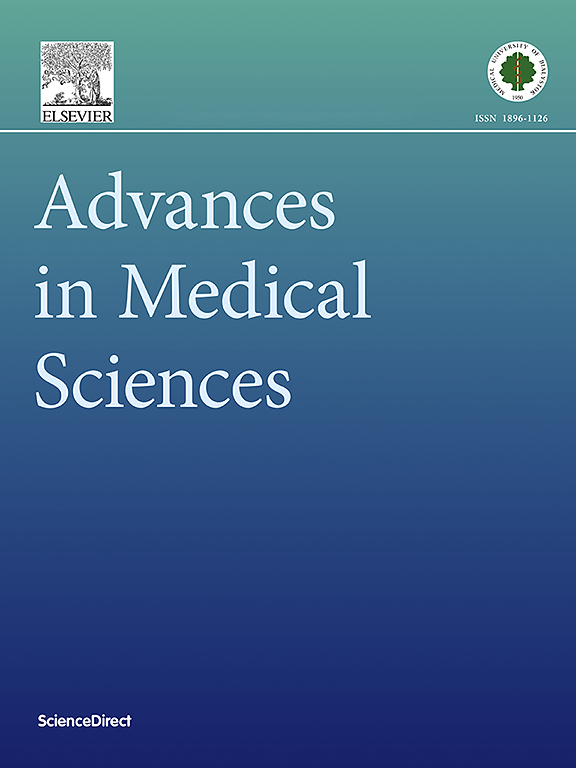在乳腺癌细胞中敲除组蛋白去乙酰化酶 8 基因可能会改变信号分子的表达模式。
IF 2.6
4区 医学
Q3 MEDICINE, RESEARCH & EXPERIMENTAL
引用次数: 0
摘要
目的:乳腺癌(BC)是世界上最常见的癌症,也是女性癌症死亡的主要原因。表观遗传机制的变化会促进乳腺癌的发生和发展。组蛋白去乙酰化酶 8(HDAC8)被发现在不同的恶性肿瘤中充当潜在的致癌基因。为了更好地了解HDAC8在BC发病中的功能,我们研究了HDAC8缺失对信号通路相关基因表达的影响:本研究采用CRISPR技术在MDA-MB-468、MDA-MB-231和MCF-7细胞系中敲除HDAC8基因。为此,研究人员设计了两个 gRNA,并将其克隆到 PX459 载体中。将含 gRNA 的载体转染到 BC 细胞系中,然后使用实时定量 PCR(qRT-PCR)测定这种缺失对信号通路相关基因表达的影响:qRT-PCR结果分析表明,与未处理的对照组相比,HDAC8基因缺失后,BC细胞系中研究基因的表达量有所下降。虽然FGF2和FGFR1基因的表达量下降不明显,但在所研究的BC细胞系中,mTOR、IGF1R、INSR、VEGFA和VEGFR2基因的表达量出现了统计学意义上的显著下降。此外,PDGFC 和 PDGFRA 基因的下调仅在 TNBC 细胞系中明显:总之,我们的研究表明,HDAC8可以通过改变参与某些信号通路的分子的表达水平来发挥其致癌作用,而抑制HDAC8可以逆转这些作用。本文章由计算机程序翻译,如有差异,请以英文原文为准。
Knockout of histone deacetylase 8 gene in breast cancer cells may alter the expression pattern of the signaling molecules
Purpose
Breast cancer (BC) is the most common cancer diagnosed in the world and it is also the main leading cause of cancer deaths in women. Change in epigenetic mechanisms promotes BC initiation and progression. Histone deacetylase 8 (HDAC8) was found to act as a potential oncogene in different malignancies. For better understanding of the HDAC8 function in BC development, we investigated the effect of HDAC8 deletion on the expression of genes involved in signaling pathways.
Materials and methods
In this study, CRISPR technology was used to knockout the HDAC8 gene in MDA-MB-468, MDA-MB-231 and MCF-7 cell lines. For this purpose, two gRNAs were designed and cloned into the PX459 vector. The gRNA-containing vectors were transfected into the BC cell lines and then the effect of this deletion on the expression of genes involved in signaling pathway was determined using quantitative real-time PCR (qRT-PCR).
Results
Analysis of qRT-PCR results showed a reduction in the expression of studied genes in BC cell lines after deletion of the HDAC8 gene compared to untreated controls. Although this decline was not significant for FGF2 and FGFR1 genes, however the mTOR, IGF1R, INSR, VEGFA and VEGFR2 genes showed statistically significant reduction in the studied BC cell lines. In addition, the down-regulation of PDGFC and PDGFRA genes were only significant in the TNBC cell lines.
Conclusion
Overall, our study showed that HDAC8 can exert its oncogenic effects by altering the expression level of molecules involved in some signaling pathways, and inhibiting HDAC8 can revert these effects.
求助全文
通过发布文献求助,成功后即可免费获取论文全文。
去求助
来源期刊

Advances in medical sciences
医学-医学:研究与实验
CiteScore
5.00
自引率
0.00%
发文量
53
审稿时长
25 days
期刊介绍:
Advances in Medical Sciences is an international, peer-reviewed journal that welcomes original research articles and reviews on current advances in life sciences, preclinical and clinical medicine, and related disciplines.
The Journal’s primary aim is to make every effort to contribute to progress in medical sciences. The strive is to bridge laboratory and clinical settings with cutting edge research findings and new developments.
Advances in Medical Sciences publishes articles which bring novel insights into diagnostic and molecular imaging, offering essential prior knowledge for diagnosis and treatment indispensable in all areas of medical sciences. It also publishes articles on pathological sciences giving foundation knowledge on the overall study of human diseases. Through its publications Advances in Medical Sciences also stresses the importance of pharmaceutical sciences as a rapidly and ever expanding area of research on drug design, development, action and evaluation contributing significantly to a variety of scientific disciplines.
The journal welcomes submissions from the following disciplines:
General and internal medicine,
Cancer research,
Genetics,
Endocrinology,
Gastroenterology,
Cardiology and Cardiovascular Medicine,
Immunology and Allergy,
Pathology and Forensic Medicine,
Cell and molecular Biology,
Haematology,
Biochemistry,
Clinical and Experimental Pathology.
 求助内容:
求助内容: 应助结果提醒方式:
应助结果提醒方式:


